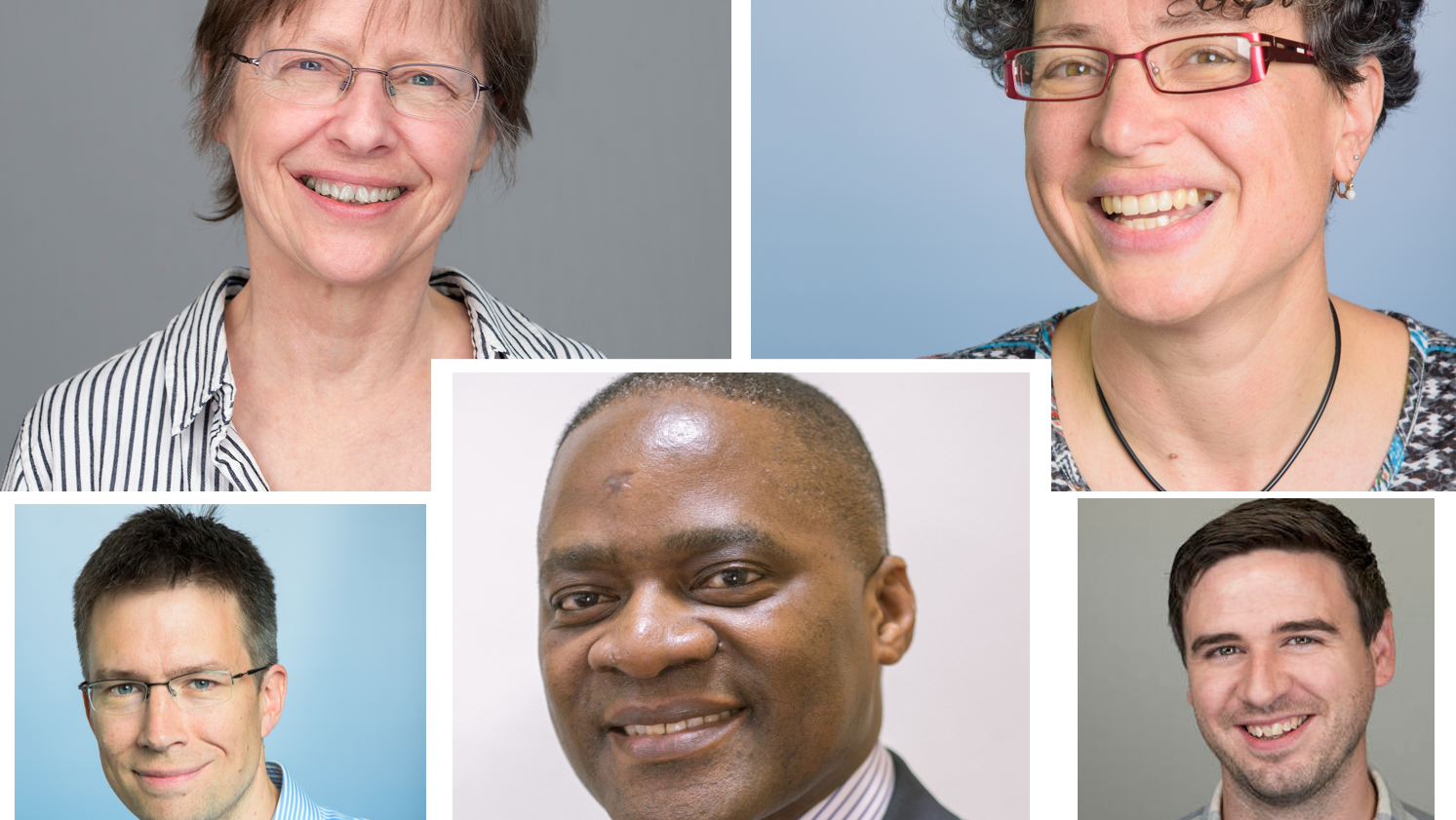
LSTM is pleased to announce the promotion of five members of its academic staff to Professor and five to Reader following ratification by its Board of Trustees.
Miriam Taegtmeyer, Penelope Philips-Howard, Nick Feasey, Nick Casewell and Henry Mwandumba have been promoted from Reader, Clinical Reader or Senior Lecturer to Professor or Clinical Professor.
Adam Roberts, Rachel Tolhurst, Peter MacPherson, Joseph Turner and Jamie Rylance have all be promoted to Reader or Clinical Reader.
LSTM’s Director, Professor David Lalloo, said: “These promotions are a recognition of the hard work and dedication shown by LSTM’s academic staff. They reflect not only wide-ranging scientific achievement, but also the impact of their work in addressing the health problems of poor communities in disease endemic countries and the commitment of all to leading and mentoring others, both here and overseas.”
Professor Taegtmeyer leads the Community Health Systems group in LSTM and works as a consultant physician at the Tropical Infectious Disease Unit, spanning LSTM and the Royal Liverpool University Hospital. Her research in the complementary areas of HIV testing and counselling and community health equity has focused on evaluating and spreading effective approaches to improving the quality and delivery of health services. In 2015 she was included in the Graduate Institute list of 300 Women Leaders in Global Health.
Professor Phillips-Howard is a public health epidemiologist based in Kisumu, Kenya and Liverpool. She leads a team researching menstrual, and sexual and reproductive health (SRH) of adolescent girls and young women (AGYW), with collaborations in Kenya and India. She is PI on a £2.6M grant supported by the Joint Global Health Trials evaluating menstrual cups or cash transfer to protect girls SRH and schooling; a USD 1.3M grant through LSHTM collaborators evaluating DREAMS intervention impact on AGYW; and Co-I on a USD ~5M R01 NIH/NICHD grant examining the vaginal microbiome. She advises on various international committees to advance menstrual health globally.
Professor Feasey is the head of the Drug Resistant Infections Group at the Malawi Liverpool Clinical Research Programme. He leads the Drivers of Resistance in Uganda and Malawi (DRUM) consortium, a £3 million Medical Research Council programme, which is taking a One Health & interdisciplinary approach to investigating the drivers of transmission of antimicrobial resistant bacteria in urban and rural African settings
Professor Casewell is a Wellcome Trust and Royal Society Research Fellow and Deputy Director of the LSTM Centre for Snakebite Research and Interventions. His research activities focus on better understanding snake venom composition and function to inform the design of new therapeutics and has published over 60 scientific papers on this topic. His research activities are funded by the Wellcome Trust, Royal Society, Medical Research Council the National Institute for Health Research. Prof. Casewell is also a co-investigator on the £9 million DFID funded ‘Scientific Research Partnership for Neglected Tropical Snakebite’ (SRPNTS), which aims to develop new monoclonal antibody-based therapies for Africa and India.
Professor Mwandumba is Deputy Director of the Malawi-Liverpool-Wellcome Trust Clinical Research Programme (MLW) and Head of the Mucosal and Vascular Immunology Group at MLW in Blantyre, Malawi. His research focusses on understanding the effects of HIV-1 infection on lung immunity and predisposition to respiratory infections, especially tuberculosis. He is President of the Federation of African Immunological Societies (FAIS), member of Council of the International Union of Immunological Societies (IUIS), Immediate Past President of the Immunology Society of Malawi (ISM) and Treasurer of the East, Central and Southern Africa College of Physicians (ECSACOP). He was the 2015 Cornell University’s Distinguished African Scholar and received the MRC/DfID African Research Leader Award in 2017.
All of those promoted to Professor are offered the opportunity to present an inaugural lecture, outlining their work to LSTM staff, students and invited guests.